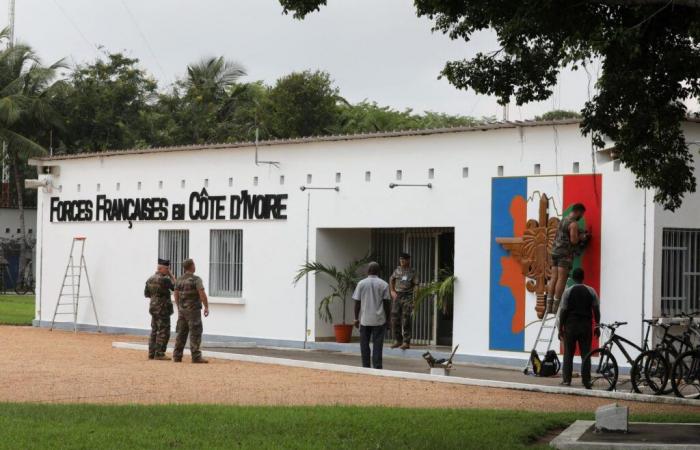The final nail in the coffin, almost. During his televised greetings on Tuesday, December 31, Ivorian President Alassane Ouattara announced the handover of the French military base in Abidjan and the departure of the forces of the former colonial power. A “concerted and organized withdrawal”he clarified. With this imminent departure, “from January” said the Ivorian head of state, a page is definitively turning for the French army in Africa.
In just a few years, it has already had to hastily leave Mali, Burkina Faso and Niger. A few weeks ago, Chad and Senegal also announced their decision to dismiss French troops. Of the old military network established by Paris following independence, at the beginning of the 1960s, only the bases of Djibouti, in the east of the continent, and Gabon, in the west, will soon remain.
But for how much longer? The lease with Djibouti, where President Macron visited just before Christmas, was certainly recently renewed. Paris wants more than anything to maintain a hold in this highly strategic crossroads, located at the confluence of the Horn of Africa, the Red Sea and the Arabian Peninsula.
On the other hand, the French military presence in Gabon appears to be a survival of a bygone past, that of a “Françafrique” where in exchange for its protection and economic advantages Paris ensured the security and sustainability of the leaders in power in its former colonies.
Electoral considerations
For local leaders, notes Thierry Vircoulon, researcher at the French Institute of International Relations (Ifri), dismissing the French army has now become “the best way to consolidate their popularity inexpensively” with their opinions as the rejection of the French military presence is massive today in Africa. The Chadian government had thus indicated its decision just before the holding of the legislative elections.
Tuesday evening, Alassane Ouattara first announced the departure of the French army, before listing the government's many successes. Next October, Ivory Coast will elect its president. In power since 2011, will Alassane Ouattara, 83, run again? The electoral campaign is, in any case, well and truly launched.
For Paris, the potion is bitter: West Africa was the last area of the globe where France could still change the course of history, as it did by intervening in Ivory Coast in the 2000s, then in Mali and the Sahel ten years later. “France is paying the political cost of the failure of Operation Barkhane in the Sahel”underlines Thierry Vircoulon.
Since the end of the Cold War, when France played the role of “policeman of Africa”, Paris has tried to reinvent the role of its armies. Without succeeding. On the eve of the surprise announcements from Chad and Senegal, the Élysée was still talking about the transformation of French military bases into training sites, in order to preserve a minimum of presence and influence in its former colonies. The response from the countries concerned comes down to three letters: “no”.






